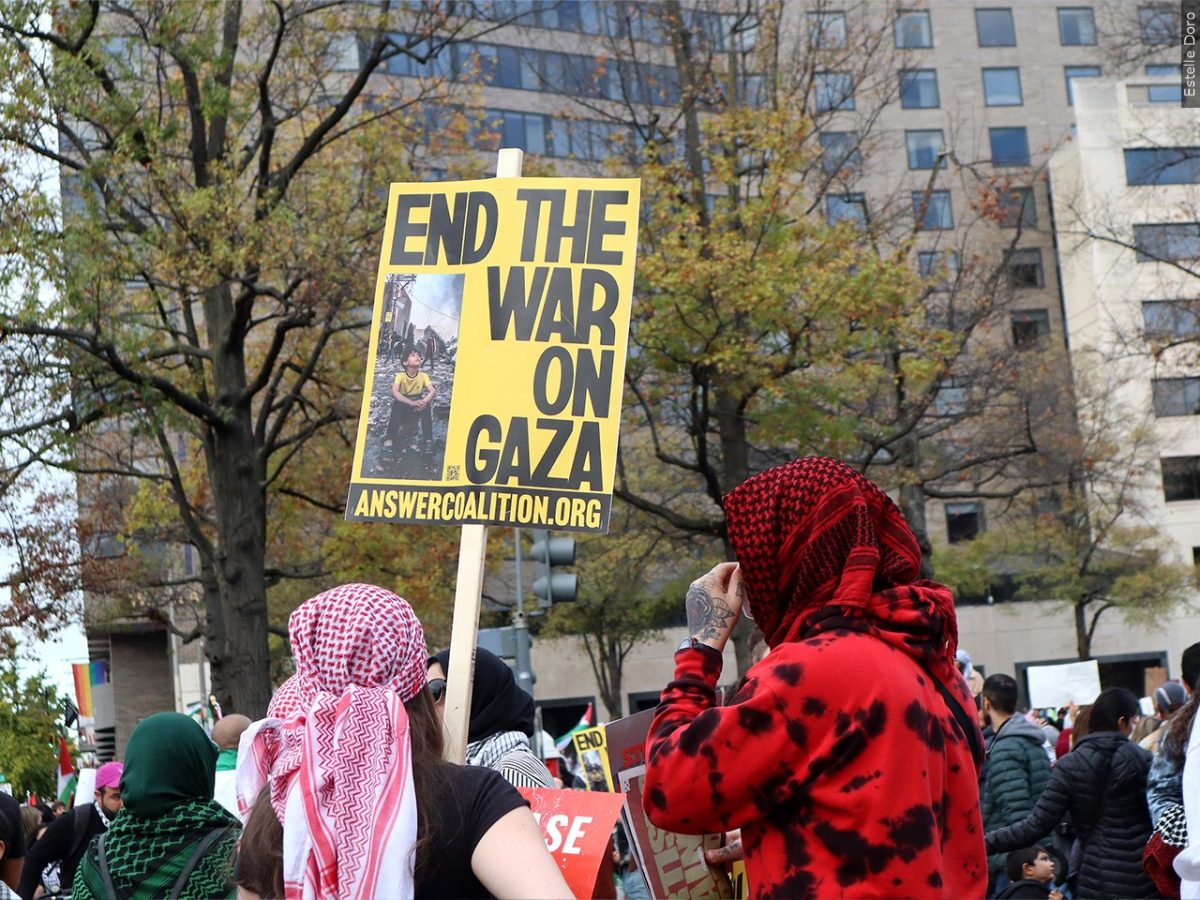A group of protestors claim to have been attacked at Columbia University in New York City on Friday, Jan. 19. The group states they were attacked with a chemical-based spray during a demonstration meant to show support for Palestinians.
At least six students from groups such as Students for Justice in Palestine, or SPJ, have reportedly gone to the hospital after experiencing nausea and headaches. The New York Police Department, or NYPD, is investigating the chemical possibly used and two alleged males who sprayed the chemical into the crowd. As of now, NYPD appears to believe that the chemical used was SKUNK.
SKUNK is a potent-smelling crowd-control weapon that is used primarily by the Israel Defense Forces, or IDF. This is a military-grade chemical that leaves a strong, lingering smell on its targets.
Police are labeling the attack as an assault, while student organizations are requesting it to be labeled as a hate crime.
“I think it was a hate crime because it was done by men who used to fight for a nation that’s currently at war with the state that the victims are protesting for,” said Jarrod Boon, a sophomore exercise science major.
The SJP is claiming the assailants have ties to the IDF, but this has not been confirmed.
“The attack, although chargeable as assault and battery, is not a hate crime, because it was motivated by hostility toward a point of view, not a protected characteristic, such as race, color or national origin,” said Adam Lamparello, an assistant criminal justice professor at GC “For these reasons, I believe it is unlikely that the students will be charged with a hate crime under New York law.”
New York law states that a hate crime is when a person targets an individual on the basis of prejudiced views.
“The students could argue that they did not attack the pro-Palestinian protestors because of race, color, national origin or anything else, but because of their pro-Palestinian views,” Lamparello said.
How the two students are charged will depend on their argument and reasoning behind the attack.
“Columbia University should pay any medical bills of the victims if the protest happened on campus,” Boon said. “They should also expel the students who committed the hate crime.”
Surveillance footage found the two males spraying the suspected substance on a light pole before the protest.
“I also think that they need to send out condolences to all the victims,” Boon said. “And they probably need to discuss better organization of these protests before they happen so they can avoid anything else like this.”
Columbia University responded to the attack by saying the protest organizers were holding an unsanctioned rally. They later released a statement saying that they have banned the suspects from campus during the investigation.
“The students could face charges of assault and battery because their conduct placed the protestors in imminent fear of harmful or offensive conduct,” Lamparello said. “And it resulted in harm, as underscored by the physical harm and emotional trauma that several protesters suffered.”
NYPD has not released information on how the suspects will be charged.
“Although I think what happened was probably really scary and concerning for all the students at Columbia, it doesn’t really impact how safe I feel here on campus,” said Bentley Savelle, a sophomore theatre major.
On Friday, Feb. 2, the SJP and multiple other organizations held a rally to support Palestinians in Gaza and to bring awareness to the attack with SKUNK. During this rally, about 15 people were taken into custody, and one person was arrested.
While incidents regarding this topic have not occurred near Milledgeville, it is important that GC students feel safe and unthreatened.
The investigation at Columbia University is still ongoing.


